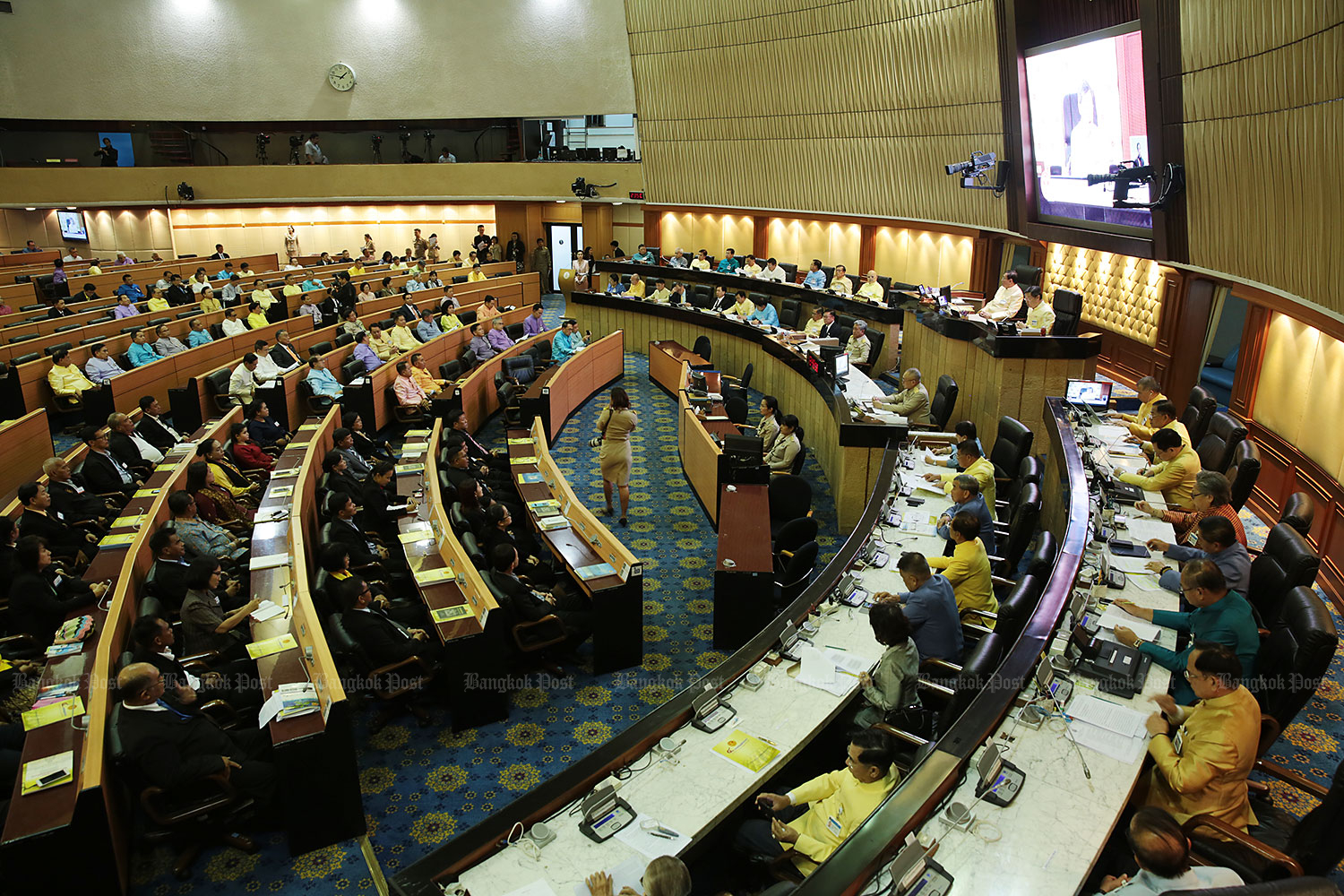
Just like it did in the past, Prime Minister Prayut Chan-o-cha's administration may just survive the no-confidence motion slated to take place later this month.
In addition to Gen Prayut, the motion also targets 10 other cabinet ministers -- including Deputy Prime Minister Prawit Wongsuwon, Commerce Minister Jurin Laksanawisit, and Public Health Minister Anutin Charnvirakul -- and dates for the debate will soon be settled.
That said, with just over 200 MPs in its ranks, the opposition needs more than just a few additional votes to knock the government coalition out of power, with the latter able to count on the support of 230-240 MPs.
At the start of his rule Gen Prayut ran the country with a razor-thin majority in parliament.
The dissolution of the Move Forward Party and the stripping of its executives' MP status have tipped the odds in his favour -- so much so, it seems, that he ignored a summons for a House inquiry last week, without assigning a deputy or other officials to attend on his behalf. His absence prompted deputy House speaker Suchart Tancharoen to reprimand Gen Prayut, asking the premier to "show some respect for parliament".
The reason why the Prayut administration managed to survive each and every no-confidence vote isn't its performance -- it's political manoeuvring. So much horse-trading goes on that terms such as "bananas", rewards for smaller parties' vote during a censure debate, and "cobras", MPs who break ranks and vote for the opposing group, are well-known among the public.
The latest such incident saw Gen Prayut forced to concede seats on the House panel overseeing next year's budget to a number of politicians, in exchange for their support for his proposed budget.
For now, the coalition bloc can breathe a sigh of relief and Gen Prayut can enjoy some comfort having handled the opposition's challenge.
That said, earlier this week, Gen Prayut blasted the opposition for attacking his administration about the same old issues.
Such a statement indicates that the government is struggling to resolve long-standing issues, which have been compounded by hardships brought on by high inflation.
While the sharp increase in fuel prices in recent months, in particular, have aggravated the nation's economic problems, Gen Prayut did little but express his concern. Instead of taking bold action to ease the people's burden, he urged everyone to tighten their belts.
Most notably, instead of reviewing the nation's electricity supply chain, the prime minister urged every household in Thailand to conserve energy by setting their air-conditioning units to 27C and boosting them with electric fans.
Under his leadership, inequality has worsened, with the wealth gap between the rich and the poor wider than ever. But Gen Prayut continues to endorse deals which favour the elites.
For instance, he distanced himself from the controversial takeover of a retail giant by the country's largest agribusiness conglomerate -- a move which will lead to a monopoly and deal a blow to small traders.
It's almost certain that the prime minister will secure another win in parliament, but he cannot deny that his popularity and that of the Palang Pracharath Party, is going down the drain, as shown by the latest Nida poll.
That said, this victory will be short-lived. With the next election just months away, Gen Prayut and the PPRP will have to brace for a real challenge from voters.







